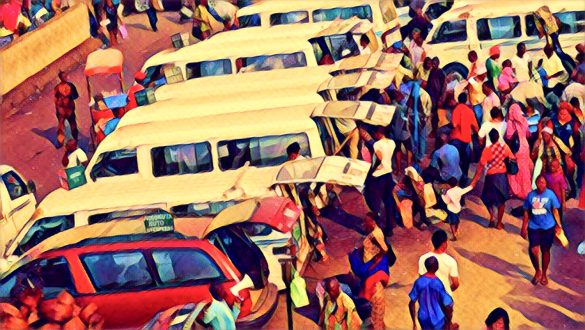Nigeria is facing its worst cost of living crisis in two decades, as inflation and fuel subsidy removal have pushed up the prices of food and transport. Many families are finding it hard to afford the necessities for celebrating Christmas and the New Year, and some are opting to stay at home instead of traveling to their hometowns.
The National Bureau of Statistics reported that the headline inflation rate increased to 27.33 percent in October, the highest since 2001. The prices of many staple foods like rice, beans, palm oil, and frozen fish have more than doubled in the past year, according to a survey by PUNCH.
Many traders and consumers anticipate that the prices will rise further before the peak of the festive season, as demand outstrips supply and transport costs increase. Some traders have also blamed the insecurity in some parts of the country for disrupting the movement of goods and farmers.
The Impact of High Prices on Families
For many Nigerians, Christmas is a time to reunite with their relatives, exchange gifts, and enjoy festive meals. But this year, many are having to adjust their plans and budgets to cope with the economic hardship.
“I doubt people will come out to buy much this year because the prices of items have tripled,” said Oluwatosin Olanrewaju, a foodstuffs seller in Lagos. “People are now opting for potato instead of yam because it is cheaper.”
Some families have resorted to borrowing, selling some of their valuables, or adopting other cost-cutting measures to make ends meet. Others have decided to cancel or postpone their trips to their hometowns, as the fares have skyrocketed.
The Government’s Response and Outlook
The Nigerian government has attributed the high inflation to the impact of the COVID-19 pandemic, which disrupted the global economy and caused a sharp drop in oil prices, the main source of revenue for the country. The government also removed the subsidy on petrol in September, saying it was unsustainable and a drain on public funds.
The government has announced some measures to cushion the effects of inflation, such as distributing palliatives to the poor and vulnerable, increasing the minimum wage, and providing loans and grants to farmers and small businesses. The government has also expressed optimism that the inflation rate will decline in the coming months, as the economy recovers from the recession and the border reopening boosts trade.
However, some analysts and experts have cautioned that more than the government’s interventions may be needed to address the root causes of the inflation, such as low productivity, high unemployment, poor infrastructure, and insecurity. They have called for more structural reforms and fiscal discipline to stabilize the economy and improve the people’s living standards.
A Glimmer of Hope Amid the Gloom
Despite the challenges and uncertainties, some Nigerians are still hopeful that they can celebrate the festive season with joy and gratitude. They are finding ways to adapt to the situation and make the best of what they have.
“I know things are hard, but I’m not going to let that spoil my Christmas spirit,” said Blessing Ojo, a teacher in Oyo State. “I have saved some money to buy some clothes and food for my children. I will also visit some of my friends and relatives in town. Christmas is not about how much you spend, but how much you love and share.”
Some religious and civic groups have also stepped in to provide support and relief to the needy and less privileged. They have organized donations, outreach programs, and events to spread the message of hope and peace.


